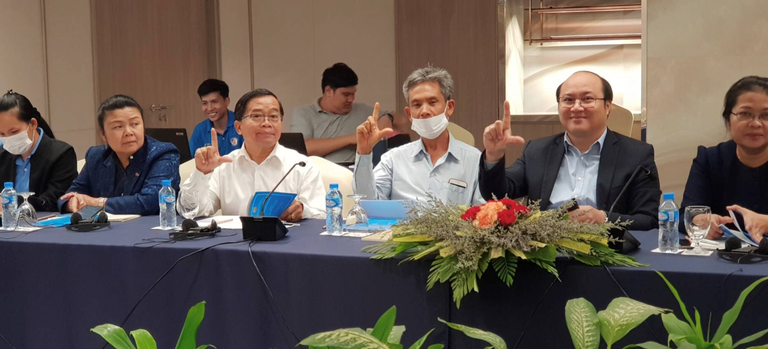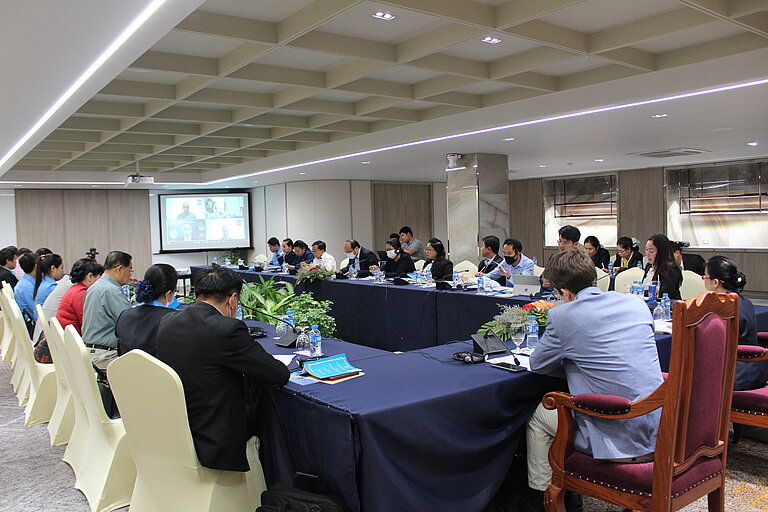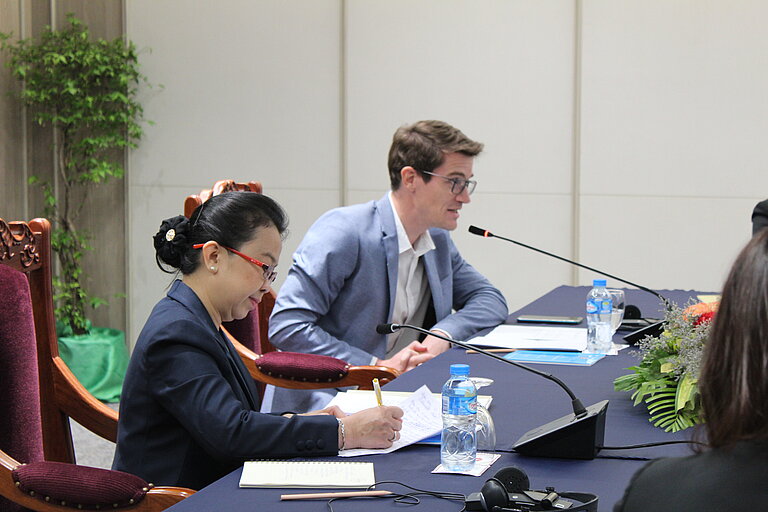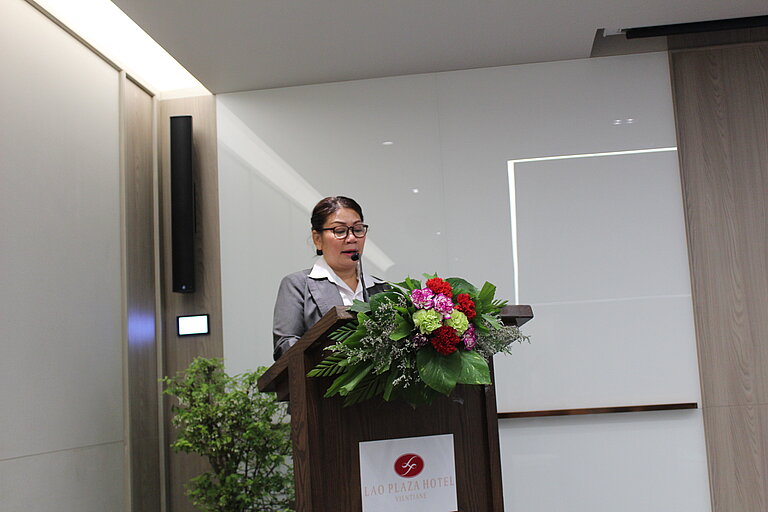Making lifelong learning meaningful in Lao PDR – DVV International invites expertise from UIL and UNESCO as a new stimulus

Since 2016, DVV International, along with other development partners and the Department for Non-Formal Education (DNFE) in the Ministry of Education and Sports (MoES), developed a Decree for Lifelong Learning which is to serve as the underlying concept of the Lao education system. The decree was officially approved by the Prime Minister in 2020. The implementation has now gained new momentum through an inception workshop which took place at the end of March 2021, with online participation from the UNESCO Institute for Lifelong Learning (UIL) and the UNESCO Regional Office for Asia and the South Pacific.
Applying a realistic concept
Developing a decree can be a challenge, getting approval might be even harder because one needs support from the political sphere. But implementing it might be the hardest task since it requires not only political consent but also the interaction of many stakeholders from different sectors. In order to still be able to meet this challenge, DVV International and DNFE invited Alex Howells and Raul Valdes Cotera from UIL and Ichiro Miyazawa from the UNESCO Regional Office to share their thoughts about the implementation with those who are involved with the application of the lifelong learning concept to the Lao education system.

Flexible learning pathways for everyone
One area which has a significant place in the decree is the issue of recognition, validation and accreditation of prior learning outcomes. This is still a major obstacle with regard to the permeability of the education system in Lao PDR. The DNFE and its substructures at provincial, district and sometimes even village level offer so-called “equivalency programmes” that provide dropouts – or even citizens who have never been part of the formal system – with an alternative opportunity to finish primary or secondary education. Yet, so far, this does not allow the graduates from the non-formal system to take up education in regular schools again. In terms of the lifelong learning concept and the implementation of the decree, it would be crucial to change this. In general, the creation of flexible learning pathways would be essential to increase the visibility of learning, the self-esteem and motivation of learners and to contribute to greater well-being and more job opportunities in the long run.
A second substantial area in the decree is the establishment of lifelong learning institutions. With an eye on restricted budgets and current structures, this does not imply the founding of new institutions; rather, it requires the transformation of existing institutions into places that offer lifelong learning opportunities. This could, for example, suggest the development of a concept which allows for the use of primary and secondary schools, as well as higher education institutions, for a wider public outside of regular school hours.
Another valuable piece of advice that was provided during the meeting was turning the focus onto the political advocacy level. It will be important to have political decision-makers onboard and to make them champions of lifelong learning in order to ensure wider political consent. And, thinking a bit outside the box, opportunities for cooperation with the private sector should not be overlooked. Why not establish agreements between DNFE and private companies to arrange for internships and education opportunities of NFE graduates?
Homework to ensure implementation
The list of recommendations and pieces of advice developed in the exchange between DNFE, other Lao stakeholders, UIL, UNESCO and DVV International, grew longer and longer over the course of the meeting. Clearly, a good foundation was laid for the development of an action plan for the implementation of the decree. DVV International will accompany this process closely, and will be supported by UIL and UNESCO as well. In November, there is a high probability that a group of 8 to 10 Lao representatives from the Ministry of Education and Sports – but also from other involved ministries such as the Ministry for Investment and Planning, or other stakeholders such as the University of Laos – will take part in a three-week online training programme on the implementation of a lifelong learning concept organized by UIL and Shanghai Open University.
Until then, the decree development meeting defined a significant amount of homework that still needs to be done by the Lao stakeholders. An initial task will be the official establishment of the Steering Committee for Lifelong Learning which will be presided over by the new Minister of Education and Sports. This steering committee will be responsible for the official approval of approaches and decisions taken under the decree. Daily affairs will be managed by the DNFE itself, which will serve as the Decree’s secretariat.
In her concluding remarks, the Director General of the Ministry’s Department for International Relations, Dr. Silinthone Sacklokham, emphasized the role of the concept as well as the importance of continuous support from DVV International. For DVV International, support for the decree will certainly remain high on its agenda in the coming years.





